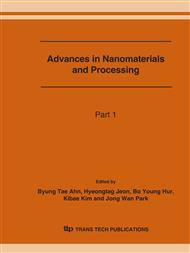p.1621
p.1625
p.1629
p.1633
p.1637
p.1641
p.1645
p.1649
p.1653
A Method for the Evaluation of Heat Transfer Coefficient by Optimization Algorithm
Abstract:
New method for evaluation of heat transfer coefficient is proposed. In general, many researchers have been studied about inverse problem in order to calculate the heat transfer coefficient on three-dimensional heat conduction problem. But they can get the time-dependent heat transfer coefficient only through inverse problem. In order to acquire temperature-dependent heat transfer coefficient, it requires much time for numerous repetitive calculation and inconvenient manual modification. In order to solve these problems, we are using the SQP(Sequential Quadratic Programming) as an optimization algorithm. When the temperature history is given by experiment, the optimization algorithm can evaluate the temperature-dependent heat transfer coefficient with automatic repetitive calculation until difference between calculated temperature history and experimental ones is minimized. Finally, temperature-dependent heat transfer coefficient evaluated by developed program can used on the real heat treatment process of casting product.
Info:
Periodical:
Pages:
1637-1640
Citation:
Online since:
June 2007
Authors:
Price:
Сopyright:
© 2007 Trans Tech Publications Ltd. All Rights Reserved
Share:
Citation:


